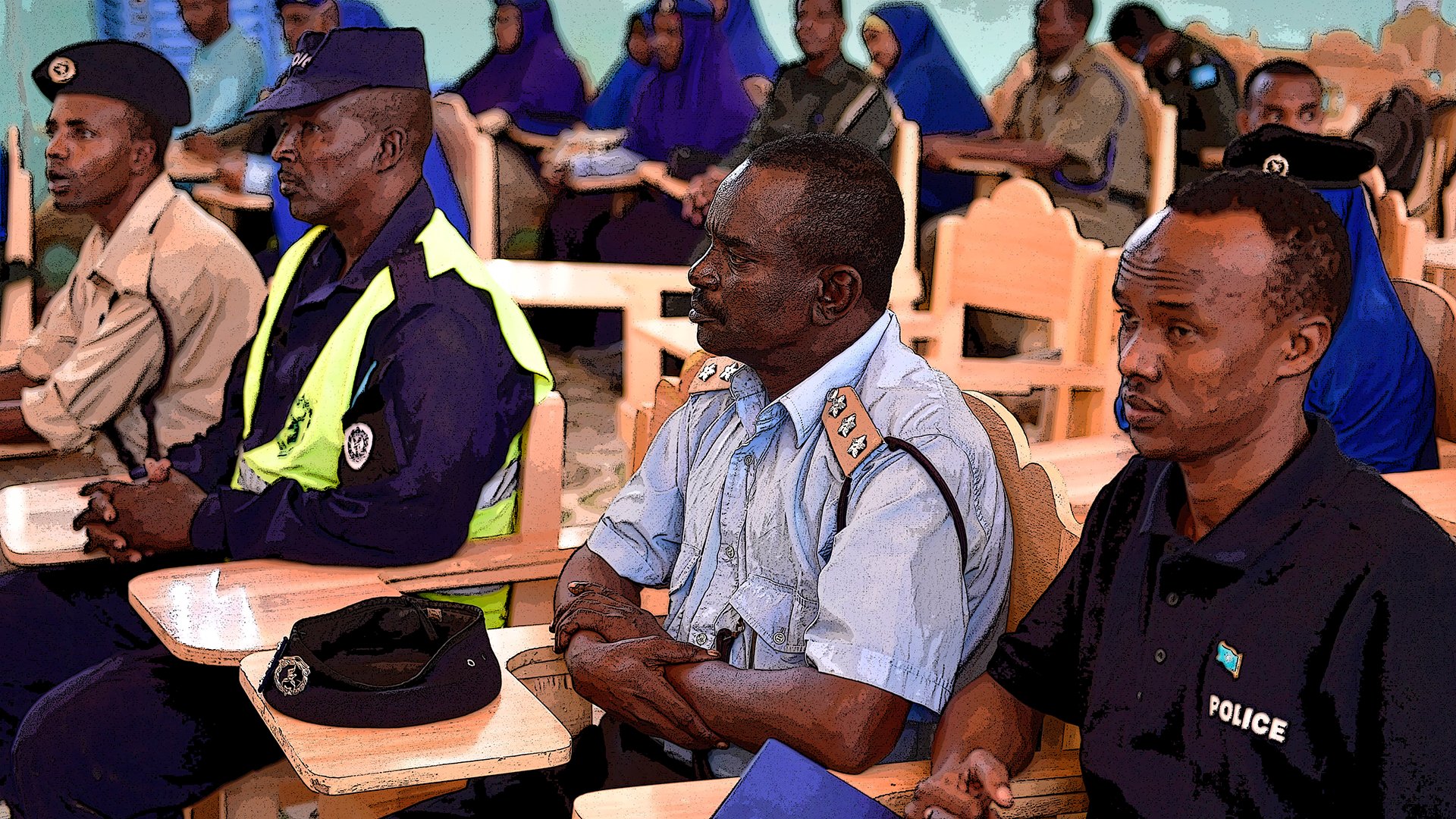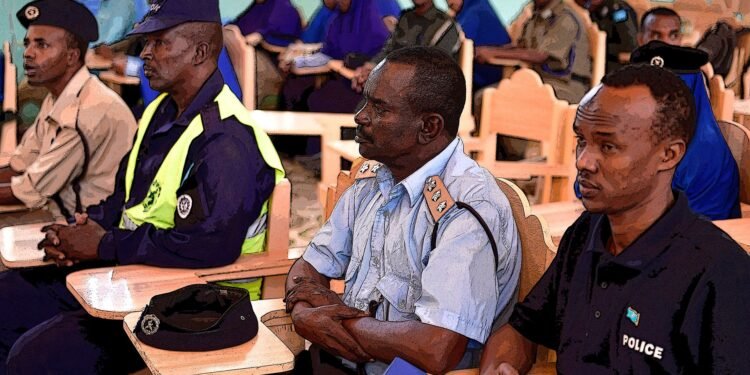
ADF STAFF
A new postgraduate course in South Africa is designed to give security professionals the counterterror expertise necessary to respond to some of the continent’s most urgent threats.
The Pretoria-based Institute for Security Studies (ISS) partnered with North-West University (NWU), South Africa’s second largest university, to create the curriculum for the one-year diploma course in geopolitics with an emphasis on counterterrorism and transnational organized crime. The course is expected to be offered in 2025 and, as a fully online course, will be open to security professionals across the African continent.
Professor Barend Prinsloo, NWU program leader in international and national security, said the idea for the project dates to 2017. He saw a problem of “siloed” approaches to addressing terrorism in South Africa and an inability to agree on how to define the threat. He hopes the new course will bring together professionals from the police, military, intelligence services, judiciary and other areas to bridge that gap.
“We see the chaos and we see a lack of integration and we want to fix that,” Prinsloo told ADF. “And we also want to see some common approaches and understanding of certain concepts like ‘What is terrorism?’ and ‘How do you define it?’ … We need to have a common understanding and I think this this will go a long way towards that.”
Willem Els is a former commander of an explosives unit in the South African Police Service. He joined the ISS in 2013 and is now the senior training coordinator in the institute’s ENACT organized crime program. In his current role he helps train police, prosecutors and others across the continent.
Els said it is vital that these security professionals learn to identify the signs of terrorism and know how to respond when they see them.
 “Terrorism is not a phenomenon like armed robbery or murder that happens every day or every second day where [investigators] get that skill and build it up through repetition,” Els told ADF. “It is something that maybe once or twice a year, some people will investigate and so this is to equip them for that.”
“Terrorism is not a phenomenon like armed robbery or murder that happens every day or every second day where [investigators] get that skill and build it up through repetition,” Els told ADF. “It is something that maybe once or twice a year, some people will investigate and so this is to equip them for that.”
Els said the need for deeper understanding of terrorism is highlighted by the ongoing insurgency in Mozambique that required an intervention by the countries of the Southern African Development Community. A clearer understanding by security professionals of the early warning signs and the global reach of the insurgency may have helped.
“Initially, people argued that it was a very localized insurgency based on local grievances and dynamics,” Els said. “But all of a sudden they started to arrest people from Sudan, people from Rwanda, people from Kenya and Somalia, South Africa and Uganda and the trafficking from these countries into Tanzania. They keep on arresting people from all over Africa coming to join the insurgency.”
Els said it is clear that terrorists benefit from divergent approaches to the problem and a lack of cooperation between agencies and across borders.
“Your international border, to the insurgent or to the terrorist, is just a river to cross,” he said. “But for us from law enforcement or from the military or from intelligence, you’ve got your boundaries and we’ve got our restrictions working within the regions and that is what we want to focus on.”
As the course develops, Els would like to see an emphasis on “prosecutor-driven” terror investigations to improve the likelihood of convictions. Often things such as the collection of battlefield evidence to aid a prosecution are neglected in the aftermath of a terror attack. He also highlighted the need for a deeper understanding of terror financing and how best to combat illicit flows of money.
The ISS has a deep roster of counterterror experts and NWU plans to bring in practitioners from the field to share on-the-ground knowledge. The ISS also helped create a counterterror manual that is used by police across the continent.
In addition to the one-year course, NWU hopes to offer shorter programs on topics including the South African justice system, cybercrime, corruption in the civil service and money laundering.
Prinsloo said the project emerged from a longstanding passion shared by both he and Els. They both believe a better understanding of the broader context that allows terrorism to thrive will help security professionals stop attacks and dismantle extremist groups.
“It’s a real gap that we’re trying to fill,” Prinsloo said. “Willem and I have come a long way on this and we could have stopped this a long time ago, but we really feel that that we can actually make a difference.”
The post South African Post-Grad Course Aims to Fill Gaps in Counterterror Fight appeared first on Africa Defense Forum.










